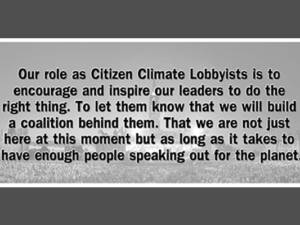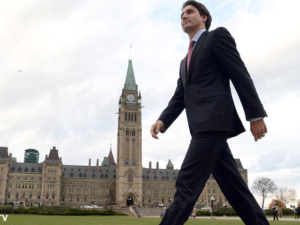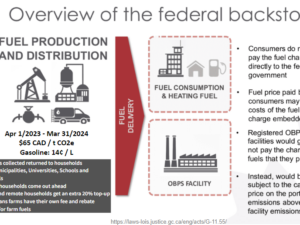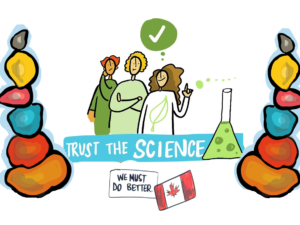(also available in PDF) It’s almost Earth Day and across the country children are picking up litter and planting trees, oblivious to the dangerous brink civilization is at. Most adults should know that a catastrophic crisis is looming. But do they really know how close we are now? The world is at a crossroads: danger and opportunity lie ahead. On Earth Day, Canada will be one of the countries at the United Nations in New York City, alongside over 130 countries, including the USA and China, to submit our national climate plan. Canada will be submitting inadequate targets of greenhouse gas emissions (GHG) reductions: 30% below 2005 levels in 2030. Our inadequate targets are not consistent with interpretations of an equitable approach to reach a 2°C pathway, let alone the 1.5 °C pathway Canada committed to at the climate talks in Paris. And, a February 2016 report from Environment Canada indicated that Canada is not on target to meet even our inadequate goals. A window of opportunity has opened. In March, Prime Minister Justin Trudeau and all territorial and provincial Premiers signed the Vancouver Declaration on Clean Growth and Climate Change. They all confirmed that meeting Canada’s climate targets must remain a priority — and devised next steps. By October 2016, Canada will have a national price on carbon. How effective that carbon price is will set the stage for future growth in clean tech jobs in Canada. Since 2008, Canada has lost 48% of its global share of the clean tech market. Meanwhile it seems a new form of denialism may be at work in Canada: one meant to persuade the public that new fossil fuel infrastructure is necessary, and climate change is perhaps not that serious. PM Trudeau, in the absence of clear plans for tackling the climate crisis, is seemingly convinced oil pipelines are a priority. Opposition to oil pipelines in the past decade is rooted mostly in the climate crisis and First Nations sovereignty. Without a socially, economically and scientifically balanced national climate and energy plan, any plan for pipelines will be met with resistance because the politicians and industrialists who want these pipelines do not have the social license to proceed. Canada’s economy will prosper in the long term for the children currently cleaning school yards and planting trees when we address the climate crisis in earnest – especially compared to the half-measures currently proposed. The reality is clear and present danger lies ahead but so does opportunity. These are the facts Citizens’ Climate Lobbyists across Canada face head on. The planet is in a crisis and currently, the poor are being impacted:10 million Ethiopians will run out of food in May because of climate change. We must act now. We have hope, based on fact there is still time but not much, and that we can mitigate climate crisis in time. Since 2010 we have been sharing a solution with Parliamentarians. The myth is busted. Canada can grow the economy and protect the environment. The world, including Canada, can convert to 100 per cent renewable energy – from wind, water and solar by 2050 and save money at the same time according to a November 2015 study from Stanford University. Check this out: Standard & Poor (S&P) reported in January 2016 that the Paris Climate deal will unleash $16.5 trillion dollars in clean tech investment globally over the next 15 years. Just imagine what will happen when there is a clear market signal for clean tech investment via a transparent carbon price. In February 2016 Sir Nicholas Stern said: “The twin defining challenges of our century are overcoming poverty and managing climate change. If we can tackle these issues together, we will create a secure and prosperous world for generations to come. If we don’t, the future is at grave risk.” Currently, the Ontario Environmental Law Association is warning that time is running out to make sure Ontario’s cap and trade policy for carbon emissions doesn’t push more people into poverty. In February 2016, PM Trudeau first proposed plans for a nationally integrated carbon price. Citizens’ Climate Lobby recommends Carbon Fee and Dividend as the overarching policy integrated nationally. Carbon fee and dividend is a revenue neutral price on carbon pollution which: · Collects a fee on carbon-based fuels when extracted or imported starting at $15 / tonne CO2 The predictably increasing carbon price will send a clear market signal to fuel innovation and investment in the clean energy economy without burdening taxpayers. Most Canadians, especially the poor, will receive more in the dividend than their increase in costs. Thus Carbon fee and Dividend will also reduce inequality. An April 2015 study from Canada’s Ecofiscal Commission determined that the Canadian economy would grow by an additional 3.7% by 2020 with a well-designed carbon pricing policy compared to using regulatory mechanisms to reduce carbon emissions. Currently, Ontario MP Michael Chong, a potential federal Conservative leadership candidate, has openly supported carbon pricing. As well, an April 5, 2016 poll found that 6 out of 10 Ontarians approve of PC Ontario leader Patrick Brown’s revenue neutral model of pricing carbon. Canadian economist Lars Osberg makes compelling arguments for the efficacy of Carbon Fee and Dividend. He also acknowledges that Carbon Fee and Dividend recognizes the property rights of all citizens which can be a populist platform for either the left or the right. Enough with the climate brinkmanship. Opportunity is knocking. Political will for a low carbon economy and carbon pricing is beginning to manifest in unlikely places. It’s time to price carbon transparently and carve out our slice of the global multi-trillion-dollar clean tech industry. Carbon Fee and Dividend is an exceptionally good news story for Earth Day. Think about it. Canada can finally begin do our part and tackle the climate crisis, while at the same time create jobs and reduce income inequality with Carbon Fee and Dividend.EARTH DAY MEDIA PACKET APRIL 13, 2016
The Climate Crisis: Opportunity Knocks
DANGER: It is warm out there
IT IS A CRISIS! And not your imagination
OPPORTUNITY: Low carbon prosperity
A SOLUTION: A carbon pricing policy for all
· The fee increases steadily each year at a rate of $10 / tonne CO2 / per year
· Pays all proceeds to Canadian households on an equitable basis via a cheque
CCL CANADA EARTH DAY 2016 MEDIA PACKET
Home » CCL Canada News » CCL CANADA EARTH DAY 2016 MEDIA PACKET













